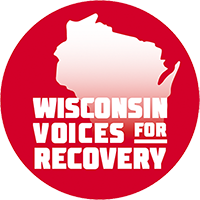Agenda
Wisconsin Voices for Recovery (WIVFR), at the University of Wisconsin-Madison Department of Family Medicine and Community Health (DFMCH), will continue to oversee the ED2Recovery+ program and offer regrant awards to organizations that will offer peer support services by recovery coaches or certified peer support specialists.
These services are currently occurring in several hospitals statewide offering referrals, support, and follow up for treatment and recovery to persons who have experienced an opioid and/or stimulant overdose or history of use. Recovery coaches and certified peer support specialists may also offer services outside of emergency department settings including destinations where a person may have experienced an opioid and/or stimulant overdose or history of use.
People may be offered services through interactions with EMT services, first responders, public health departments, probation and parole offices, law enforcement, and treatment and/or recovery centers. This statewide peer support network functions as a portion of the State Opioid Response.
The ultimate goal of the program is to unite treatment systems to promote peer support services that will:
- Decrease the number of overdose fatalities in Wisconsin
- Increase treatment and recovery support service utilization by the target population
- Reduce Emergency Department admissions due to overdoses
- Provide peer support services in community settings
- Be a sustainable and collaborative peer support network
Thursday, April 20th
Erin Rachwal, LCSW, is a grieving mom who tragically lost her 19-year-old son Logan to a fentanyl poisoning on Valentine’s Day, 2021. She and her husband Rick co-founded the Love, Logan Foundation in 2022. Their mission is to save lives through increased support and education in the community, to end the stigma associated with mental health and substance use disorder, and to raise awareness of the dangers of fentanyl and other illicit drugs.
Harm reduction strategies reduce the negative consequences of risky behaviors and thus meets people where they're at without ignoring or condemning them. Hannah Feest, from Vivent Health, will discuss the harm reduction philosophy and Vivent Health prevention services.
We will highlight the unique circumstances pregnancy presents to people with substance use disorders. We discuss how peer support trained doulas can benefit the care provided to pregnant people with substance use disorders. We welcome feedback on how to improve these options.
Burnout has been identified as a phenomenon in the caring professions since the 1970s. The pre-pandemic challenges have magnified and the toll on providers has increased. This talk will describe the opportunities and challenges of caring for people in the field of substance use disorders in the current health care climate. This talk will describe how to monitor the self for this impact and share strategies for developing resilience in the face of many competing demands. Experiential practice will be provided through guided meditations.
Learning Objectives:
- Describe the challenges with the pandemic on health care workers, including peer support specialists
- Differentiate between burnout and compassion fatigue.
- Describe approaches to develop and nurture resilience while undertaking challenging work
- Evaluate the potential benefits of Mindfulness Meditation for practitioner well-being and quality of care
- Evaluate and experience the practice of Mindfulness Meditatio
Friday, April 21st
To be our best at helping others, we must do and be a lot of things: Hold people in high regard, be accepting, genuine, focused, empathic, compassionate, and maintain hopefulness despite many real-world stressors and pressure. If we don't believe in how much good we're doing, it's hard to hold hope for others.
These helper characteristics can be taught, learned, and improved. Through experiential and self-reflection activities, we will build upon participants' understanding of hope. We will identify effective methods for fueling and re-fueling our own hopefulness so we can continue to encourage hope in our colleagues and our clients. We will conclude by considering potential next steps for participant growth in all areas of helping.
We have created a presentation in an effort to address barriers to seeking treatment for substance use disorder and other perceptions of Opioid Use Disorder caused by stigma within communities of color. Some topics that will be addressed are the effects of stigma, raising awareness on the impact of stigmatizing labels associated with substance use disorder and cycles of stigma.
Conflict is inevitable in multicultural teams working toward equity, inclusion, and belonging. Conflict, when understood and embraced, can be generative towards real change and can help to reorganize power dynamics among people and groups that are traditionally marginalized and those that are often advantaged.
This module will support organizations to reflect on conflict experiences, conflict styles and needs, and provide tools for moving through conflict towards transformation. Groups can utilize learning to develop practices for giving and receiving feedback, and for engaging in productive discussions and decision making in alignment with organizational values.
The Recovery Journey is certainly not a straight path. We will encounter many twists and turns on the road we trudge to happy destiny. How we act to the twists and turns are essential to our Recovery. We will encounter obstacles, barriers, and stigma.
I will be sharing with you my personal journey and how I faced the twists and turns. It was not easy, but I trudged the road to happy destiny with help from others.
We will have an opportunity to share our strengths with each other.
The miracle will happen!
